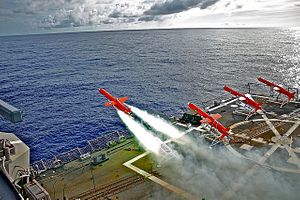Do Americans know what it’s like to go to war? The question is certainly not meant to insult to American servicemen/women and their kin who have endured 13 years of constant warfare. I have no illusion about the personal grief the wars in Afghanistan and Iraq have visited upon many military families, the psychological toll inflicted, lives destroyed, and futures not to be had. Of course, the United States Armed Forces know what it means to go to war. During one of my last trips to Afghanistan, I reported from a remote combat outpost that had come under terrible attack. The heroic way those young soldiers dealt with the devastating situation alone in the mountains of Eastern Afghanistan will always remain with me as a shining example of the professionalism of the U.S. military.
But it can’t be denied that the U.S. experience – and in fact this is true for all Western countries – of going to war is a unique one in history: In the present day, Americans usually travel thousands of miles to the battlefield to fight, while their families are safe and secure from the enemy no matter what the outcome. There is no direct correlation between success on the battlefield and the safety of loved ones. (Of course, one could debate the positive and negative influences of the wars in Iraq and Afghanistan on avoiding another major terrorist attack like 9/11.)
As a consequence, war is a lot “cleaner” for those of us who live in the United States and Western Europe than it is for large segments of the world population. For us, defeats in Afghanistan, Iraq, and Vietnam do not mean burned down houses, mass public executions, mock trials, confiscation of property, rape and torture, or slavery. Yet this is what war felt like only 20 years ago in Europe, and it is how it still feels like today in places like Iraq and Syria. Sure, Westerners experience body bags, mutilations, and PTSD. War for American and European soldiers is certainly not pretty. However, no soldier in the West knows what it means to have to abandon your house, leave your ailing parents behind because they cannot walk, drop all your possessions, and flee the city where you had lived all your life within an hour from either a regular army out for plunder or, worse, a murderous band of thugs dedicated to wiping out any traces of your earthly existence.
Yet, for most of history that’s what it meant to go to war (and lose).
This summer, I was in Northern Iraq, right at the time ISIS turned its eyes on Kurdistan and the few Christian cities protected by Kurdish forces, such as the ancient Assyrian town of Qarakosh. Once the ISIS onslaught began, Peshmerga forces meant to protect the Christians in the city quickly abandoned their positions. (I wrote about it here.) The entire Christian population had to flee. Many of the men of Qarakosh that I interviewed the following day were openly weeping and begging for the West to send them weapons so that they can go and re-take their town. As they spoke to me, this feeling of impotence was what troubled these proud men most, an emotion that no Western soldier has had to experience in recent decades in connection with his or her family or property.
Within the Western world, the U.S. experience is quite unique in how safe the country has been from devastation for most of its history. Even during the nation’s most devastating conflict, the U.S. Civil War, only the South experienced the horrors of total war. Yet, not all Western countries are alike. In Germany, for example, the discussion on war is somewhat different.
Even the word “war” carries a very different connotation for Germans than for people in the United States. War for Germans means totaler Krieg [total war], a great upheaval fought on home soil, in close proximity to one’s own people with a large number of civilian casualties, military blunders, and military lies. The Second World War dangles over Germany like the sword of Damocles. In contrast, war for Americans occurs in a distant country with few or no U.S. civilian casualties and with little to no actual consequence for the larger public. The word Bombardierung for Germans still induces the horror of Dresden, with mangled and burned corpses, the utter destruction of civilian life, and the helplessness of confrontation by overwhelming force. For Americans, bombardments happen overseas in Vietnam, Korea, Iraq, or Afghanistan. The “collateral damage” may be seen on television but is never experienced directly.
This brings me back to my previous posts (here, here and here). If we really want to understand the perception of the United States military abroad, as well as the tendency of U.S. policymakers to use the military as a panacea for many of the world’s problems, we also have to consider the rather unique American experience of going to war.
































